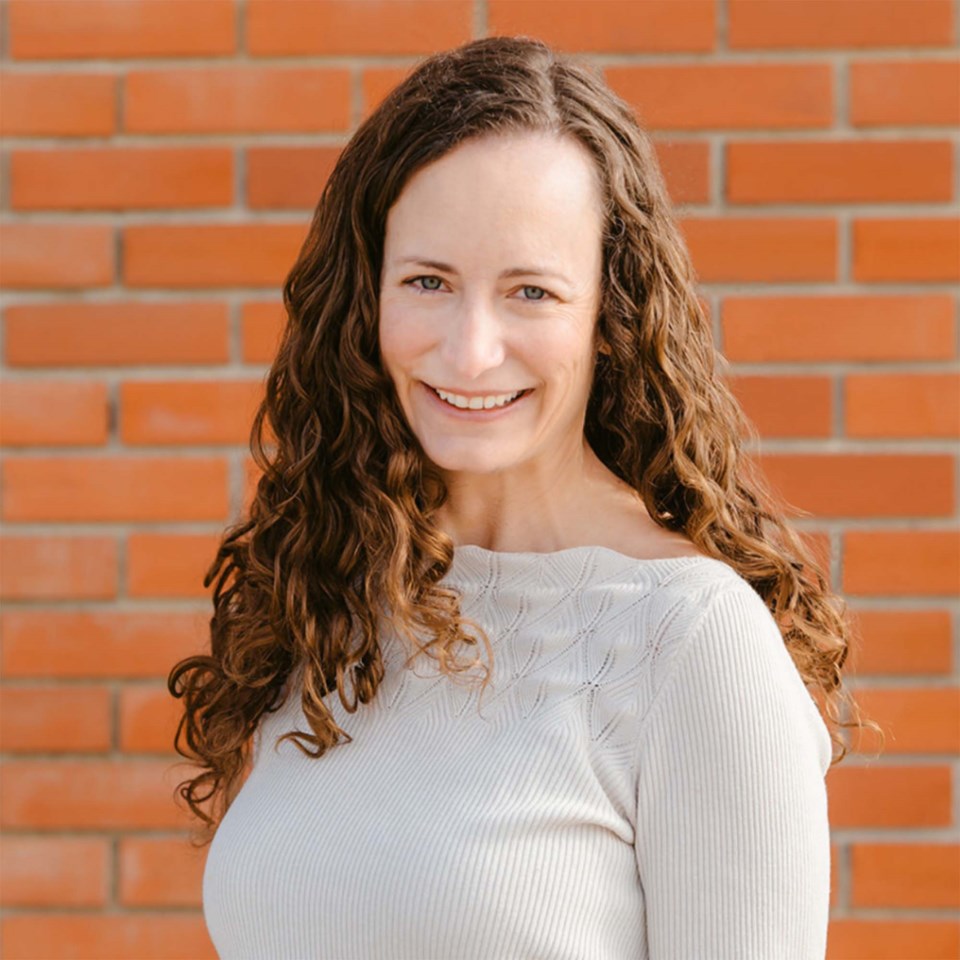Child anxiety was the focus of an in-person and online presentation attended by over 200 St. Albertans on Thursday night.
The event, hosted by Family and Community Support Services at the Arden Theatre on Nov. 3, featured St. Albert's Tania Johnson discussing the psychological and physiological roots of anxiety in children, and offered strategies for calming an anxious child.
Jen Becker, community development coordinator with the City of St. Albert, said 75 people attended in person and 173 people signed in online.
“I think that everyone who attended left with some valuable information; Tania is so brilliant and skilled!” said Becker, in an email to The Gazette.
The event was an information-packed two-hour presentation and Johnson, a registered psychologist, play therapist and co-founder of the Institute of Child Psychology, covered a variety of topics.
“(Tania) currently specializes in parent coaching, believing in the importance of empowering parents with therapeutic tools to create long-term shifts in their families. She works primarily from an attachment-based approach.
“This means that she works with clients to explore how early relationships impact how we come to understand ourselves or other people, and the world around us,” said Becker during the presentation.
Johnson said one of the biggest mental health issues with children is anxiety, and children will often show that anxiety in external ways.
“We'll see those tantrums. We'll see those outbursts at school later on. What happens is that those external symptoms become internalized. And you'll see that anxiety shoots right up for our teens,” she said.
Johnson said there has been an increasing awareness of anxiety in kids, and with it comes a higher rate of diagnosis.
“Unfortunately, one of the things that sometimes happens in therapy -- not with all therapists -- but there tends to almost be like a fast-food approach. We come in, we do four quick sessions, and we get out,” she said.
When the fast-food approach is used, it might come up with strategies for the child that work initially but eventually fall apart “because we haven't actually looked at what's going on underneath the surface.”
Johnson said there are some myths when it comes to anxiety, the first being that a child’s anxiety can be controlled.
“Our goal is not to control a child’s anxiety, our goal is to respond to our child’s anxiety,” she said.
Johnson said parents should act like thermostats rather than thermometers as they respond to anxious children.
“We are warm. We are consistent. We are regular in how we respond to our kids. They get anxious, we stay grounded and connected. They come down, we're still the same person; we are their anchor,” she said.
Johnson said a little bit of stress is a good thing and encourages people to think about the way they talk about stress to children. She said co-regulation always happens before self-regulation.
“The next time your child is anxious or you're working with an anxious kid, they want you to take notes and think to yourself, 'This is happening on an unconscious level for this child. But what is happening with my breathing my body, my tone of voice?' So, when our voice is quite cold ... it conveys that we are stressed, we're not relaxed. So, just think about what are the cues that I'm giving this child right now,” she said.
Johnson went over four different attachment styles in parenting and said an authoritative parenting style nurtures a securely attached child. These parents are in charge but are also open and connected. They give their child limits, but those limits can be discussed.
Johnson said parents grow along with their children and should work on collaborative problem-solving, rather than just telling kids what to do.
Parents also need to make sure they notice and celebrate their children’s achievements.
“'I noticed how hard you work for that assignment.' It's always on the effort, and then we're validating feelings,” she said.
Johnson recommends parents be attuned to their children and really listen, regardless of age.
“So much of our communication is non-verbal. And they know if you truly listening — if you are hearing me, if you see me,” she said.
Johnson spoke about making sure each child has purpose, some control over their life, and a sense of joy. She recommends allowing children to be brave and also allowing them to fail.
“Our work with our children is to try and remove them from that negativity bias and to find a new happiness set point. And one of the best ways to do that is through gratitude practices, to do a daily gratitude journal,” she said.
Johnson said one family she worked with did a gratitude practice before they ate.
“Another family got Popsicle sticks from the dollar store. And every time they were grateful, they would write what it was on the Popsicle stick that each had their own colour and they put it in a jar,” she said.
Parents also need to care for themselves.
“I say to you, the greatest gift that you can give to your child is your own healing, whatever form that may be,” she said.
For more information on this presentation, email Family and Community Support Services at [email protected] or call (780) 459-1756.
Family and Community Support Services will also host its Parent Series beginning in January, said Becker. Topics include teaching children about healthy relationships and consent, and digital safety.




